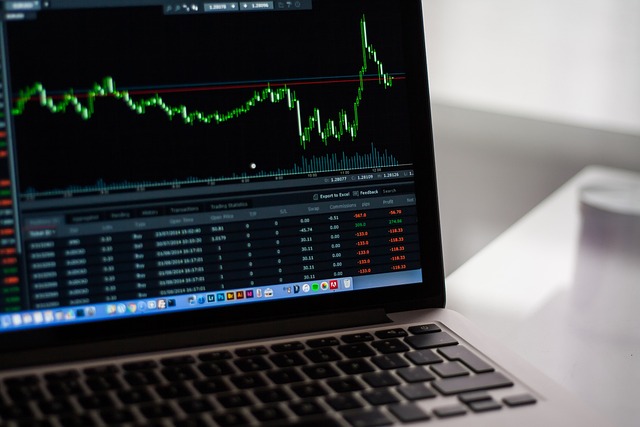The global forex market has continued to grow markedly over the course of the last three years, with its daily trading volume rising from $6.6 trillion to $7.5 trillion since 2019.
The total value of the forex market is also estimated to be in the region of $1.93 quadrillion, which is a staggering number when you consider that the global GDP totaled approximately $103 trillion at the end of last year.
However, it’s interesting to note that forex isn’t legal in every jurisdiction across the globe. But why is this the case, and can you trade international currency pairs in Maryland? Let’s find out!
What is Forex Trading?
The practice of forex trading sees the buying, selling, and exchange of international currencies, such as the Euro, British pound, and US dollar (which is the world’s most dominant reserve currency and features in 88% of all daily trades).
Currencies are traded in pairs and presented as the quotation of one currency against another. The EUR/USD is an excellent example, as this pair is underpinned by the two strongest economies in the world and accounts for more than 20% of daily FX trades.
The first currency listed (in this instance, the EUR) is referred to as the base currency and describes the instrument that you intend to buy or sell. The second is known as the quote currency and reflects the real-time exchange rate between the two assets.
Because of this, the price of the base currency is also reflected in units of the quote currency, with this likely to fluctuate in real-time, according to various macroeconomic factors and basic drivers such as supply and demand.
Forex trading is speculative in nature, which means that you can trade currencies without assuming ownership of the underlying financial instrument.
This makes it possible to trade both positive and negative price movements, leveraging the market’s innate and short-term volatility to your advantage in the process.
In the current climate, of course, some may advise against trading forex given rampant inflation (which devalued currencies and their purchasing power).
While we all know what causes inflation and that such factors as the war in Ukraine will continue for the foreseeable future at least, however, the flexible and speculative nature of FX trading makes it possible to use such volatility to your advantage.
Why is Forex Trading Prohibited in Some Jurisdictions?
So far, so good, but it’s interesting to note that the practice of forex trading is completely prohibited in some countries and jurisdictions across the world.
These include Israel and Malaysia, while the Belgian authorities officially banned over-the-counter (OTC) forex platforms and FX contracts for difference (CFDs) back in 2016. Other national governments have sought to restrict access to forex brokers and the promotion of such platforms, including Belarus, Canada, China, India, Japan, Iran, Pakistan, Saudi Arabia, and South Korea.
In Turkey, the nation also recently introduced new rules aimed at preventing traders from using non-regulated forex brokers or those based overseas, creating a narrow and similarly restricted marketplace for aspiring traders to operate in.
Even in France, which boasts a relatively large and open financial marketplace, brokerage sites that offer leverage in excess of 1:20 are likely to be prohibited from marketing their services through social media.
Clearly, this undermines one of the core advantages of trading forex, which is a highly leveraged financial product and one that enables you to open positions that are disproportionately large in relation to your deposit. For context, reputable brokers can offer leverage of up to 1:200 in some instances, creating the potential for significant returns and losses depending on how the market moves.
Of course, increased leverage is one of the reasons why forex trading is prohibited in some jurisdictions, especially when you consider that some 70% of forex traders regularly lose money. Some authorities estimate that more than 90% of traders, with these entities, often move to restrict market access or ban the practice completely.
Another perceived issue with forex trading is the relative lack of regulation within the global marketplace. This translates into a relative lack of transparency, which despite the market’s significant liquidity, can make forex appear as a potential scam that’s misrepresented and associated with extensive losses.
But is Forex Trading Legal in Maryland?
Of course, there are also numerous countries and jurisdictions that permit forex trading and have taken proactive steps to regulate the market and make it considerably more transparent.
These include the UK and the US, both of which have created highly regulated and liquid FX marketplaces.
In the case of North America, this market is regulated by the Commodity Futures Trading Commission (CFTC). Brokers in the states must therefore be licensed and registered as both Futures Commission Merchants (FCMs) and Forex Dealer Members (FDMs) with the CFTC, in order to operate transparently and within the country’s legal parameters.
This means that you can trade forex freely in Maryland while being assured that any broker you interact with is fully regulated and required by law to act in a completely transparent manner.
But is forex trading for you? We’d recommend that you familiarize yourself with the market before getting started, as it can help you to understand a little more about the market and whether it suits your outlook and strategy.
You should also appraise your existing portfolio of assets where applicable, to determine precisely where forex will sit and how it enables you to minimize your exposure to market risk over time.







Recent Comments